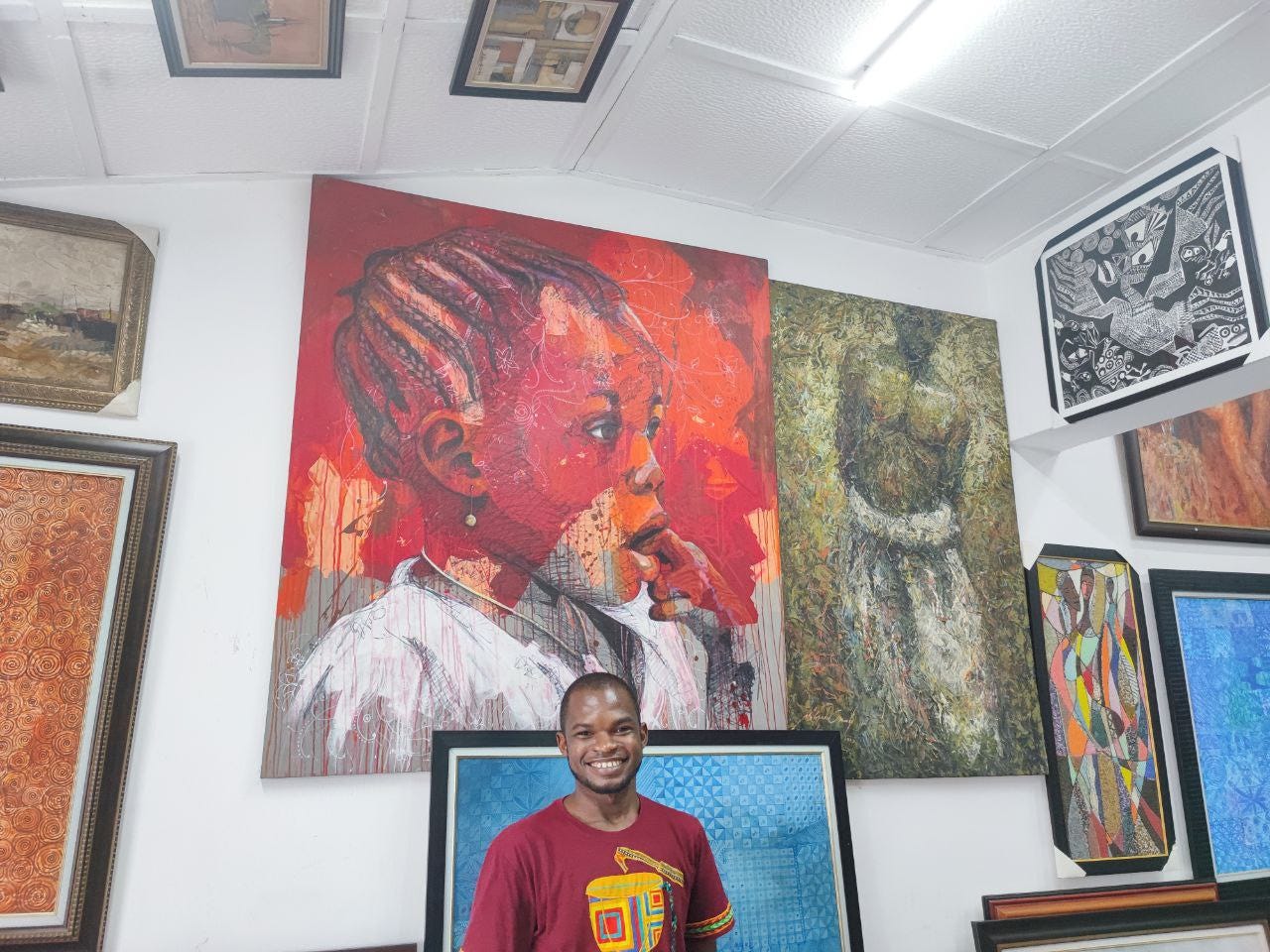Oh, taste and see!
Our perception of people, situations, and the world around us can often be clouded.
I was surprised to hear from both Ivy and Chirks this week that they were wondering where my latest Eavesdropping letter was. While Chirks knowing isn't a surprise, I hadn't mentioned the newsletter to Ivy directly. It's a sweet reminder of friendship, but also a nudge that what we put out there has an audience.
I explained that I usually write on Thursday at midnight, but this week I was in transit so I was exhausted by that time. Last week, a power outage left me without the tools to write. While these are valid reasons, they do highlight the need for me to be more flexible in the future.
Aside from their questions, I had a fun moment with Ivy and Chirks this week. We were watching "Ebuka Turns Up Africa" when Ivy jokingly asked who I'd bring on a similar trip. [Laughs!] While I'll skip the details of our conversation, something interesting came up. Both Ivy and Chirks said there’s a difference in how I act around close friends compared to how I am in other settings. Ivy even said, "Someone might think Johnstone is quiet, but see how he lets loose here!"

Oh yeah! I hear this a lot from friends. It reminds me of something we'll be discussing today — not judging people based solely on one experience or story. While the context is different, the principle remains the same.
Nigerian author Chimamanda Adichie calls it ‘the danger of a single story’.
Near the end of our final year exams in senior secondary school, the principal called a tense assembly. She expressed disappointment in our graduating class's behaviour, particularly an incident the night before where some students threw stones at staff during a ‘midnight’ inspection at the male hostels. As a consequence, she announced the immediate ‘deboarding’ of all male seniors, including myself.
With only two exams remaining, the four-hour journey home was not an option. I needed to find a nearby place to stay until I finished my finals. While searching for accommodation among classmates, I received a call from my chaplain. He had heard about the principal's decision and wanted to help me find a place to stay.
He asked me to come to the rectory at the boys' school next door, where he also served as chaplain and teacher. He planned to get me to stay with the students at the principal's residence. However, it didn’t work out. The principal hesitated about letting a "deboarded" student stay at his residence. Rumours swirled that we were expelled for being cultists, a stigma I had to face despite being innocent. Well, the chaplain asked me to stay with him. He had known me for a long time, he practically watched me grow up. For this reason, the rumours didn’t affect his trust in me.
The bishop was visiting our area during this time, so I planned to help my chaplain after my final exams. He also arranged for me to travel with the bishop's secretary since we were headed to the same place.
To my surprise, the principal approached me after lunch and said, "My friend, I am sorry, I misjudged you." His words were unexpected but soothing. I thanked him with a grateful smile.
"Can you see anything?" Jesus asked the Blind man at Bethsaida. The man looked up and said, "I can see the people, but they look like trees walking around." Once again Jesus placed His hands on the man's eyes, and when he opened them his sight was restored, and he could see everything clearly." (Cf: Mark 8:24)
Our perception of people, situations, and the world around us can often be clouded. Just as the blind man in Bethsaida needed Jesus' touch to see clearly, we may need a different perspective or a moment of clarity to truly understand. The proverb 'Don't judge a book by its cover' reminds us that true understanding requires more than a surface-level glance.
*********
🎶 I was writing this letter while listening to Koinonia Worship Experience 2023.
🍿 Current Watch: Aníkúlápó: Rise of the Spectre. (The Series reminds me of how intertwined stories can be yet with a common theme).



